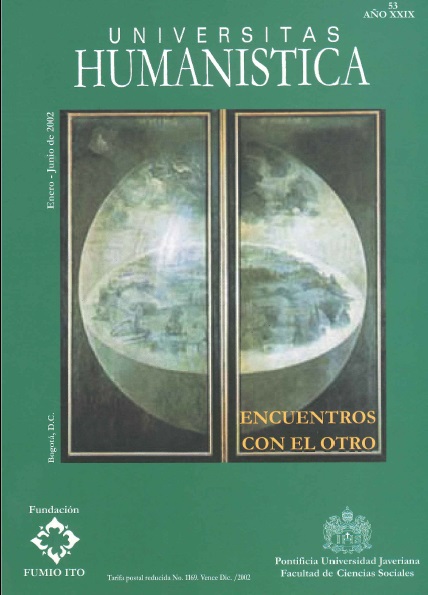Abstract
Referirse a una historia de la sexualidad y a las formas como ésta se ha vivido en tiempos y lugares distintos, implica partir de un principio fundamental: la sexualidad es un hecho cultural. A partir de este principio, el artículo explora los principales problemas de la evolución de la homosexualidad partiendo de los principios que sentó el desarrollo del cristianismo primitivo dentro de la experiencia de la Antigüedad tardía. A continuación, se explora la evolución del discurso doctrinal y los comportamientos «sodomíticos», término medieval, para observar sus cambios especialmente en los siglos XII y XIII, época en los que se definió una postura intolerante frente a la diferencia sexual.
Aunque con actitudes e interpretaciones distintas debido ai proceso de encuentro europeo con culturas indígenas y africanas que concebían la sexualidad de manera distinta, la cristiandad sostuvo sus posiciones heredadas del mundo medieval. Sin embargo, en las colonias el castigo del pecado-delito contra, natura, dependió de una amplia casuística que, nunca tan drástica como se ejecutó en Europa.Discurso y práctica, en la historia de la cristiandad, definieron el espacio desde el cual hoy nos podemos preguntar por el qué es y cómo se formó el ideal occidental del ser mujer y hombre. En otras palabras, la sociedad cristiana definió cómo debía ser el comportamiento sexual, al mismo tiempo que estableció los parámetros sobre los cuales se articularon las relaciones de género.

This journal provides immediate open access to its content on the principle that making research freely available to the public, encourages greater global exchange of knowledge.
The journal Universitas Humanística is registered under a Creative Commons Attribution 4.0 International Public License. Thus, this work may be reproduced, distributed, and publicly shared in digital format, as long as the names of the authors and Pontificia Universidad Javeriana are acknowledged. Others are allowed to quote, adapt, transform, auto-archive, republish, and create based on this material, for any purpose (even commercial ones), provided the authorship is duly acknowledged, a link to the original work is provided, and it is specified if changes have been made. Pontificia Universidad Javeriana does not hold the rights of published works and the authors are solely responsible for the contents of their works; they keep the moral, intellectual, privacy, and publicity rights.
Approving the intervention of the work (review, copy-editing, translation, layout) and the following outreach, are granted through an use license and not through an assignment of rights. This means the journal and Pontificia Universidad Javeriana cannot be held responsible for any ethical malpractice by the authors. As a consequence of the protection granted by the use license, the journal is not required to publish recantations or modify information already published, unless the errata stems from the editorial management process. Publishing contents in this journal does not generate royalties for contributors.


